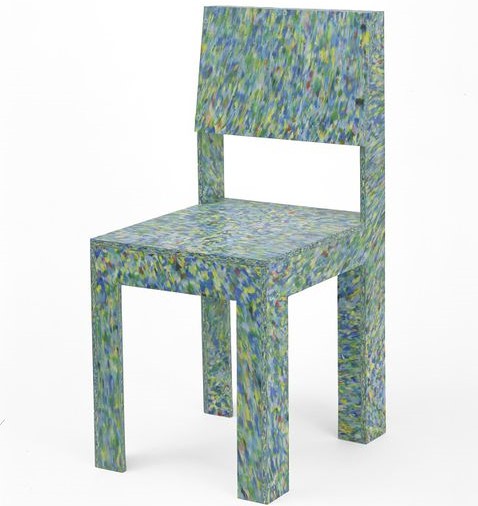Jane Atfield was among the first to use recycled plastics to make consumer goods, with the 1992 release of the RCP2 Chair. Atfield made her own flat panels by recycling HDPE containers, colour sorting to produce panels in a variety of colours. While the chair was originally released in a limited edition it has since been re-released a number of times.
Following the success of the design, Atfield teamed up with engineer Colin Willianson to form Smile Plastics based in south Wales, which went on to produce a range of products using the similar flat panels. Following Williamson’s retirement Adam Fairweather and Rosalie McMillan reactivated the brand. Smile Plastics now produce 3000 x 1200 mm flat panels in a range of thicknesses from 5 to 20mm, all made from 100% recycled plastic and offered in a range of colours. A custom service is also offered to develop colours and finishes for special projects. The company can produce 300 sheets a week, diverting up to 3000 tonnes of plastic waste each year.
In addition to the panels Smile Plastics have worked with designers to produce hospitality and retail interiors. For example, Silo, the first zero-waste restaurant in London, features bar and tabletops, coat hooks, chopping boards and splashbacks all made from Smile Plastic’s boards. Panels have also been used in bathrooms, where their waterproof, mould and rot-resistance properties are particularly relevant.
Smile Plastics claim their production method produces the lowest carbon footprint compared with other recycled plastic panels on the market. Water consumption is also claimed to be significantly lower when compared to traditional and alternative surfaces.
From Atfield’s simple chair, designed over 30 years ago, Smile Plastics has evolved into a significant employer in Wales and has become a significant player promoting the use of renewable plastics in design.
